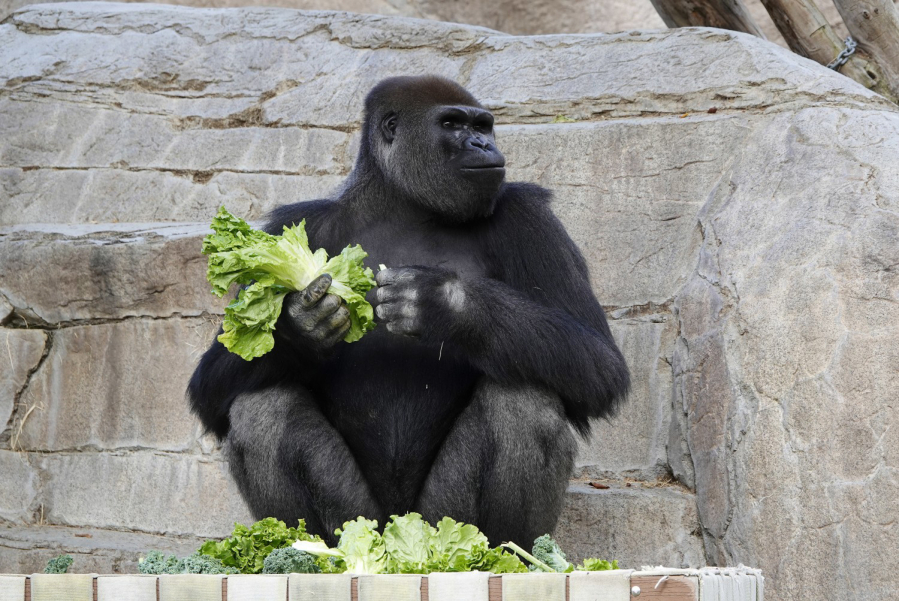SAN DIEGO — Weeks after gorillas at the San Diego Zoo Safari Park contracted COVID-19, park officials said Monday the animals will make a full recovery.
The troop of eight gorillas was likely exposed to the coronavirus by a keeper who tested positive for COVID-19 in early January. Days later, a few gorillas began coughing. Nearly the entire troop seemed a bit less energetic than usual, according to Lisa Peterson, executive director of the Safari Park.
Park staff confirmed the diagnosis by testing the troop’s fecal samples for the coronavirus. Those samples came back positive for the so-called “California variant” of the virus, a fast-spreading strain linked to at least 14 COVID-19 cases in San Diego County and 446 infections statewide — and counting.
Since then, the park’s veterinary team has monitored the troop to make sure that they are eating and drinking enough to recover on their own.
“We’re not seeing any of that lethargy. No coughing, no runny noses anymore,” Peterson said. “It feels to us like we’ve turned the corner.”
Fecal samples from the gorillas are no longer testing positive for the coronavirus.
There was one gorilla that Safari Park staff kept an especially close eye on: Winston, the troop’s leader, a 49-year-old silverback.
Veterinary staff teamed up with Rady Children’s Hospital to take a closer look at the older gorilla under anesthesia, taking blood samples and a nasal swab as well as performing an echocardiogram and ultrasound. The team found that Winston had pneumonia, likely due to COVID-19, as well as heart disease, one of the underlying medical conditions that the Centers for Disease Control and Prevention has linked to more severe coronavirus infections.
Winston was put on antibiotics and heart medication, and he received an antibody treatment — a therapy meant to block the coronavirus from infecting cells by using Y-shaped immune proteins that coat the virus.
Winston has been more active since being treated with the antibody. But Dr. Davey Smith, UC San Diego’s chief of infectious disease, suspects the treatment likely didn’t play a major role in the gorilla’s recovery, as antibodies are most effective when administered soon after symptoms start.
“Usually they should try to get the treatment in before five days (after) symptoms start,” said Smith, who spoke with the Safari Park team about different treatment options. “From what I heard, the gorilla had been sick for a while. So he wouldn’t meet our usual criteria.”
It’s the first known case of the virus infecting any of the great apes — a group that includes gorillas, bonobos, chimps and orangutans. Humans share about 98 percent of our DNA with gorillas.
To safeguard these animals, Peterson says, some of them will get the COVID-19 vaccine — though, like Winston’s antibody treatment, the vaccine comes from a supply not permitted for use in people.
“The hope is that we would be able to vaccinate wildlife that would be susceptible to illness and then prevent them from ever catching it,” she said.
In other words, the same rationale for vaccinating people against the coronavirus.
Nearly all of the veterinarians and others at the San Diego Zoo and Safari Park who work directly with animals have received a COVID-19 vaccine, according to Peterson, noting that these employees fall into the same vaccination category as health care workers.



